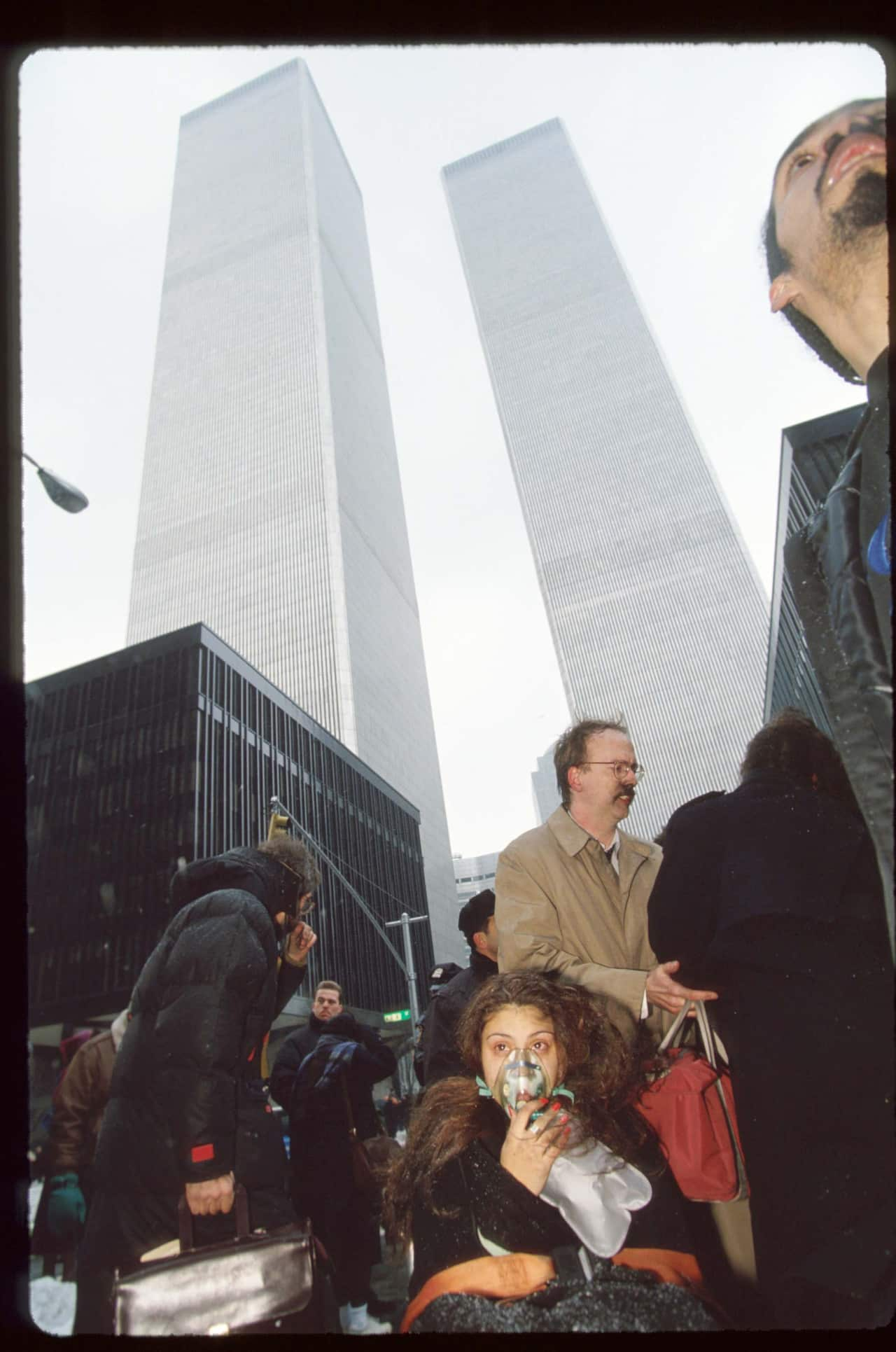On 5 November 1990 my father, El-Sayed Nosair, assassinated the extremist Rabbi Meir Kahane in New York City. The experiences I have had as a result of my father’s actions set my life on a course that even to this day I have a hard time fully processing.
Exposure to men like the blind sheik Omar Abdel-Rahman, who helped coordinate the 1993 World Trade Center bombing, and the hatred that men like him preach warped my worldview in a way that took years of conscious effort to undo. The death threats against my family from those seeking vengeance for my father’s actions and the instability of having to move 20 times in 20 years made me feel that at any moment my fragile world would again be turned upside down.
Additionally, being bullied in school and abused by my stepfather at home ripped away what little confidence or sense of self-worth my younger self had accumulated in that time.
For as long as I have thought about the question, “Why did you change your path?”, I have grappled with how best to respond. Do I talk about my father’s actions? Or perhaps it’s more natural to talk about my own life experiences as a result of those actions?
The complicated answer is to say that in my life I have had a thousand interactions, experiences and lessons that lead me down the road I am on today. Perhaps if a particular person or place had been different it would have completely altered my trajectory and I wouldn’t have been so fortunate to find my way out of the darkness.
At a very young age I was isolated from society at large and taught to be fearful of it, often for the most arbitrary of reasons. That empathy from years of being physically and emotionally abused provided a visceral reaction in my mind to my own hypocrisy. Every time I treated someone badly because of their race, religion or sexuality I was reminded of what it felt like when someone had done it to me. After growing up in so much hardship and strife I refused to perpetuate that feeling in others. Because of this realisation, I finally felt there was light at the end of the tunnel. And for a while it was enough for me just to revel in the warmth of these new friendships and the acceptance that came with no longer judging people based on the stereotypes I had been taught.
Fear and isolation are two of the most important ingredients in radicalising someone.
But I looked at this bright new world I had become a part of and I saw enormous suffering. I asked myself, “Why was I so lucky to escape this indoctrination when others did not?”
I don’t feel particularly special. I have had some hurdles to overcome but I don’t think there is anything unique about my ability to overcome them. The answer is simply that fear and isolation are two of the most important ingredients in radicalising someone. If you are able to free someone from one or both of these constraints you can interrupt the process of indoctrination. As I got older I had the opportunity to interact with those I had been taught to hate. This turned out to be the surest way to breakdown the stereotypes I had been taught.
Attacks on western citizens by groups like Islamic State serve the purpose of creating an environment perfectly suitable for indoctrination. I also believe that the rise in nationalist ideologies here, in the US and Europe have a direct relationship to these attacks. We see proof of this in the election of men like Donald Trump, someone who has argued in favour of the murder of innocent Muslims, simply for being related to someone who commits an act of terrorism. Essentially condemning people like me to death for the actions of my father. We do the work for groups like Isis when society at large begins to make decisions based on fear of the “Muslim terrorist” stereotype. This extraordinary fear and hatred divides our nations and further isolates the most vulnerable in those communities – leaving them susceptible to indoctrination.

Although I am now an atheist, I believe it’s imperative that people of all faiths (or none at all) be able set aside their differences and work together towards common goals. I have had the great privilege of working with people from all over the world who derive much strength from their faith and use it to benefit others.
As a public speaker and author of The Terrorist’s Son: A Story of Choice, I was fortunate to be invited to share the stage at Oxford University with one of my heroes, Archbishop Desmond Tutu, on the discussion of faith. I firmly believe that although we may not always agree on everything we must come together to promote our shared goals of equality for all.
There is little doubt that the quality of human life increases dramatically when we decide to cooperate with one another across the lines of tribe and nation. As we collaborate more we also prosper. It’s not that our differences have gone away, it’s that we learn to live together peacefully in spite of them. This is why I chose my path. Because I know firsthand of humanity’s capacity for positive change and I know of the value in reminding each other of that capacity.
Zak shares his story on this week's Insight, as the show looks at how people break through cycles of crime, violence and disadvantage | Breaking Free - Catch up online now:
[videocard video="918982723748"]
A version of this piece originally appeared in the Guardian Australia
Insight is Australia's leading forum for debate and powerful first-person stories offering a unique perspective on the way we live. Read more about Insight
Have a story or comment? Contact Us


